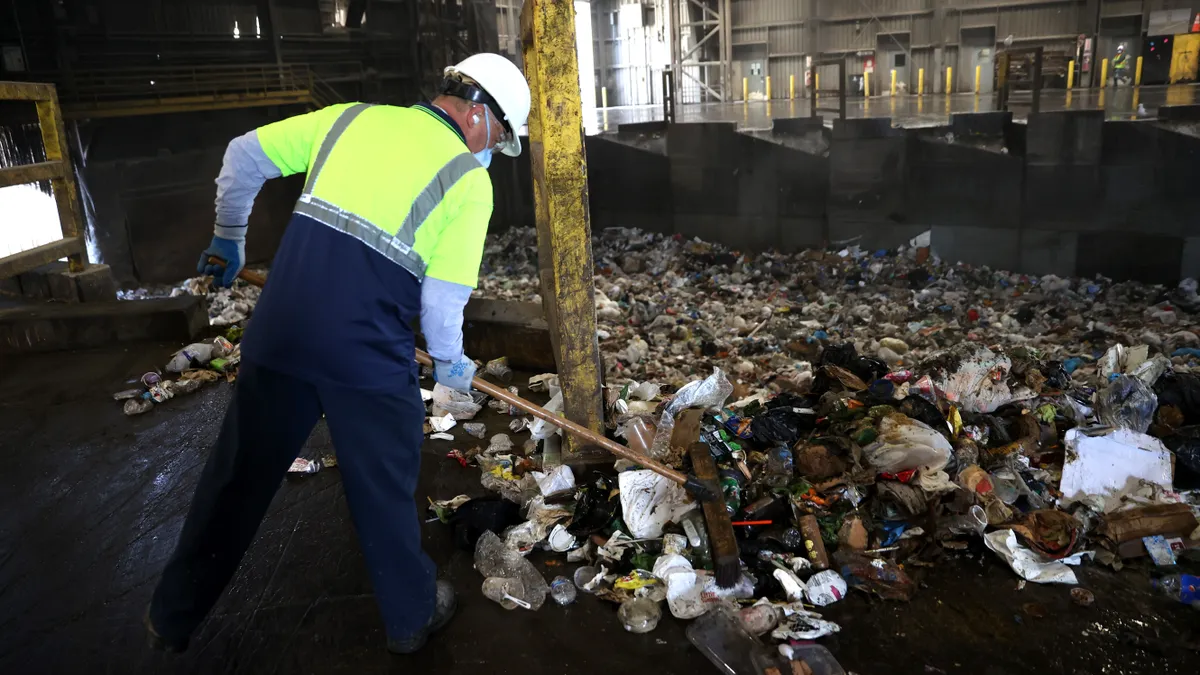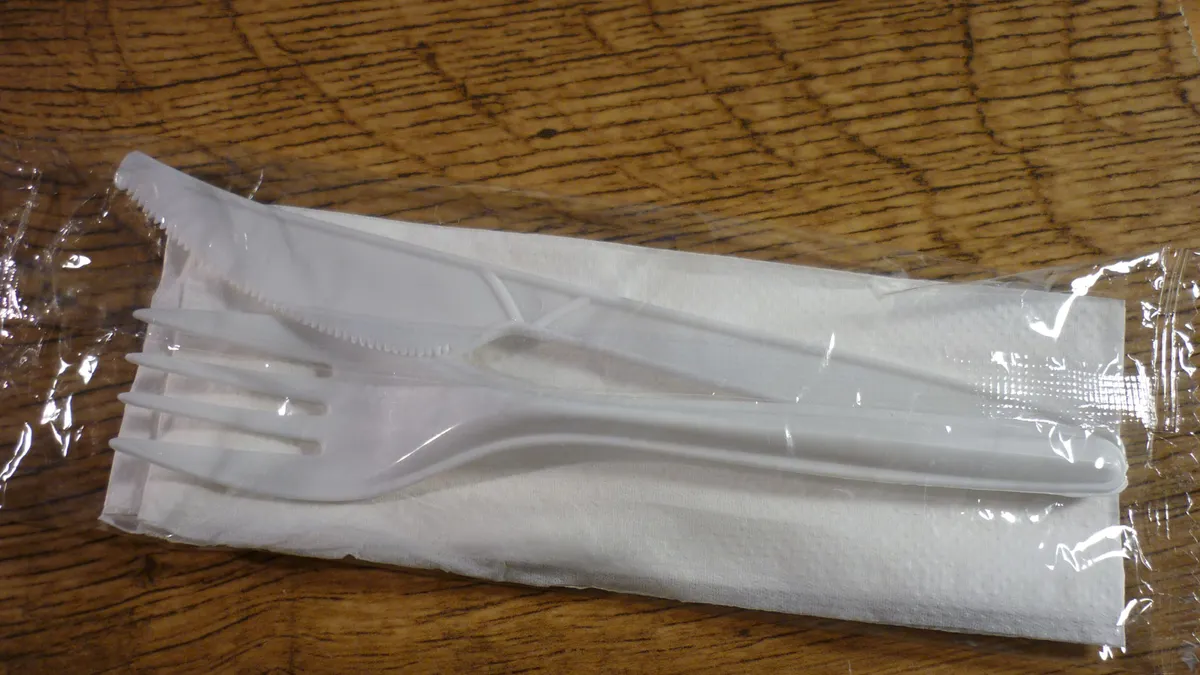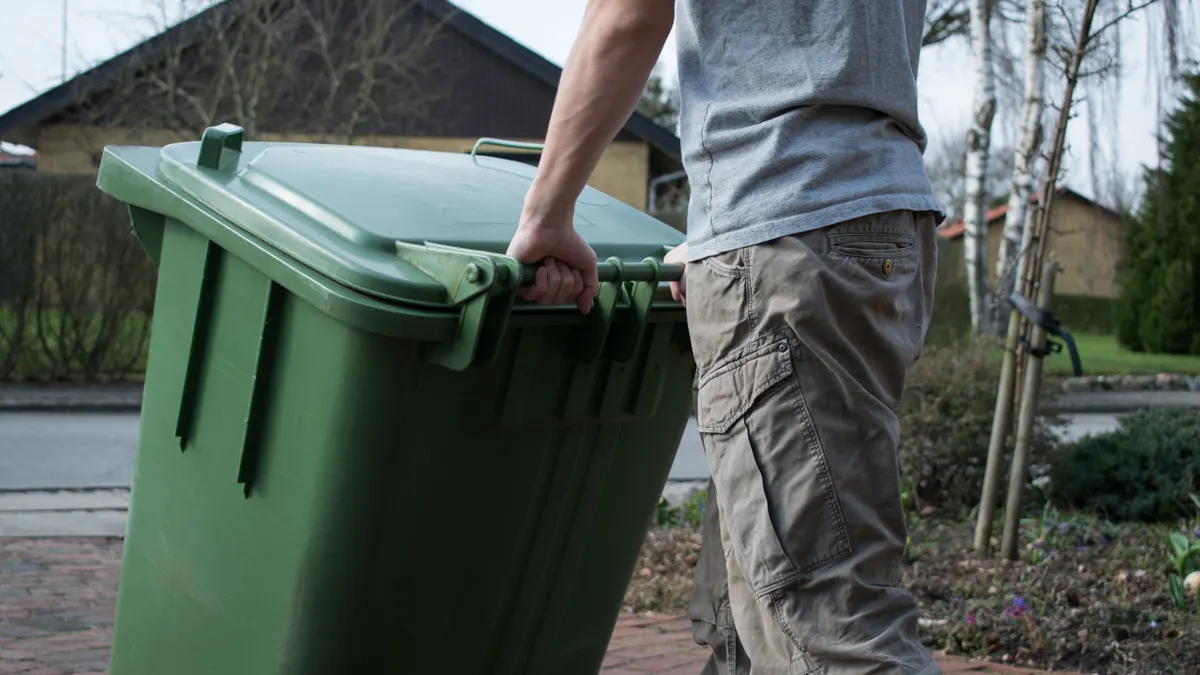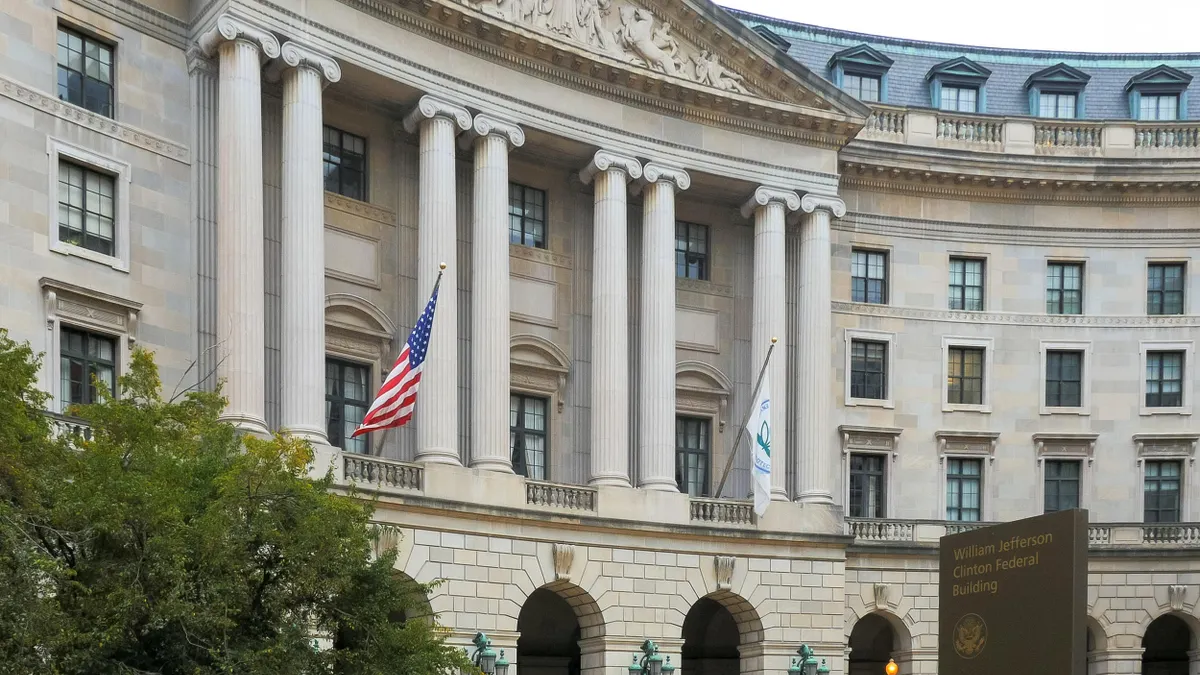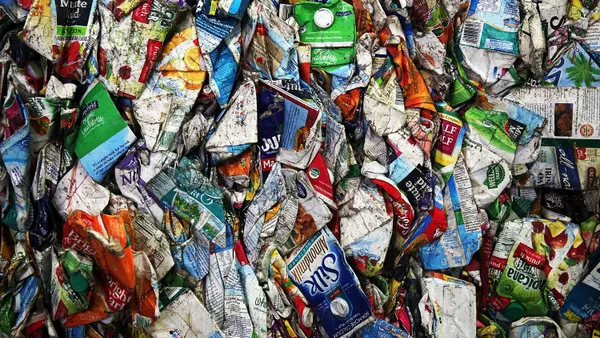At a time when the recycling industry is experiencing new energy and new uncertainty, a familiar organization is looking to rejoin the conversation.
The National Recycling Coalition (NRC) has hired its first executive director in nearly 10 years, after recovering from an extended period of debt and dormancy that began around 2008. After a competitive process that involved more than dozen candidates, the NRC board officially selected Marjorie Griek during a recent meeting in Minneapolis. Griek has been the executive director of the Colorado Association for Recycling, chair of the Recycling Organizations of North America and served on the NRC board in various capacities.
Waste Dive spoke to Griek during the Resource Recycling Conference in Minneapolis on Aug. 29 to hear about her plans for the organization.
The following interview has been edited for brevity and clarity.
WASTE DIVE: What made you interested in this job?
MARJORIE GRIEK: I have been engaged with the NRC for many years. So I started to get to know people at the organization and its mission. When NRC went into decline, myself, Gary [Liss] and a couple other people started the Recycling Organizations of North America (RONA) to try to act as a placeholder and a bridge as NRC was rebuilding. Once we got to a point where it felt like NRC could make it on its own again we donated the resources of RONA to NRC and [joined] the existing board. So it's been a long relationship and from my experiences having been an executive director of a state recycling association, my experience of running a national organization —what we called RONA at the time — and my experience as treasurer and vice president on the NRC board, it just felt like a really good fit.
Where do you see the new NRC fitting in with other organizations in the industry?
GRIEK: Right now we definitely want to be there for our affiliate organizations. Those are the state recycling organizations. That has been a very traditional relationship and we certainly want to maintain that and even grow and expand that as much as we can, and have resources available for them to do their work. I also believe right now we've got some flexibility in where we can go and what we can do. The market situation is dire. We want to try and focus on that and see what NRC can do to help. That's going to help our state organizations, because if their communities don't have a place to send their recyclables we could see a lot of programs just going away. It's already kind of dicey in many situations for those communities to be able to do recycling. If they can't sell it, if they have no place to move those materials, they may not be able to stay operational.
We're starting that here at the conference with the sessions that NRC is hosting and putting on. We're trying to bring together those trade organizations and the state recycling organizations to get to know each other, and know what resources are out there, and what the trade organizations can do for the recycling organizations, and what issues the recycling organizations are dealing with that the trade organizations probably know nothing about.
We're building on that with some case studies in a session that we're sponsoring [today]. Then we're building even further by going into the national and international arena in the closing plenary with Rep. Ellison and Barnes Johnson from the EPA, where we'll be talking about trade policies and how they impact the commodities and what we can do in terms of trying to build the infrastructure in this country. We know we can create a lot of jobs. We know that. So why aren't we doing that and how can we help make that happen? We're working with all of these other organizations that are going to have similar issues, but have a slightly different focus. So if we can help convene that, bring that together, participate with them, collaborate and maybe try and head some of this problem off at the pass I think that that's something of true value that NRC can bring to its members, affiliates and as a participatory organization with these others.
"We know we can create a lot of jobs. We know that. So why aren't we doing that and how can we help make that happen?"

Marjorie Griek
Executive Director, National Recycling Coalition
We've heard from local groups such as the Northeast Resource Recovery Association how often they help communities figure out their contracts, and it is a very local issue. Though at the same time we're also discussing international factors. Plus material is often crossing state lines.
GRIEK: Yeah, absolutely. I'm in Colorado and luckily, within I'd say the last two years, we've had a couple of companies come in that can help deal with glass. Momentum and Clear Intentions. But when it comes to some of the other materials we're not so lucky and a lot of that material is shipped to the Southeast, it's shipped to the Midwest, it's shipped over to China. So in Colorado they've been starting to look at how do we create local markets, and haven't gotten terribly far on that.
Low tip fees probably make that challenging, as they do in other parts of the country.
GRIEK: We also have an issue with transportation. For some reason, transportation in and out of Colorado is higher than it is to many other states. There's a lot of issues in terms of the whole recycling industry — there's the design side of things, there's the transportation, there's the processing, there's the end markets. If we don't have end markets we might as well fold up and go home because otherwise what are you going to do? You're just going to build a big pile of something that you've been spent time and money sorting and moving around and it's not going to go anywhere.
Do you see NRC playing a role in helping to drive that conversation about how to create more domestic end markets?
GRIEK: If the demand is there then people are going to invest. So I think that's part of what NRC can start to work on in terms of how do you build that demand. Who do you go to? How do we work with these trade organizations to say how do you get your members to demand more recycled product? How do we get that product to your members in a way that's more consistent and reliable? So I think that there's work that can be done and collaboration and discussion. NRC can convene events like this where we bring those people together and try and get movement and see what we can do in terms of buy-in.
How can professionals or companies on the collection and sorting side get involved?
GRIEK: Well you can start by becoming members of your state recycling organization, that's always a good one. And then if you don't have one you can directly join NRC. Because that way we can get information to you and then you can get information back to us. Participate in webinars that NRC is sponsoring along with the Pennsylvania Markets Recycling Group. We do newsletters. We'd love to hear about what folks out there are doing. If people have ideas bring 'em on. I think that there's people out there who may not have the solution, but have some really new ways of looking at things. Some of us have been in the industry for so long you kind of forget that you're inside a box.
Those are good things, and people should also be talking to your legislators, talking to your elected officials. Because most people think of it as waste, as trash. Somebody else is going to deal with it. It's going to go away. It's not. We all generate it. It's in our backyards whether we know it or not and if we want to be smart about this we want to deal with it in the best way possible. And we're not really doing that right now.







